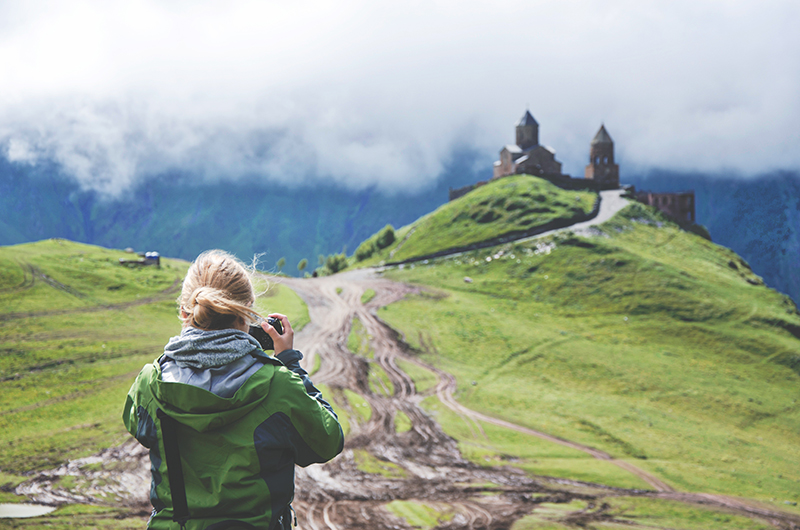The Wanderlust Gene: Do you have it?
We’ve all heard the stories about people packing up their entire lives and moving across the planet to experience something brand new, sometimes in a country they’ve never set foot in before. And then we all know those people that would be terrified at the thought of that. Those people that have lived in the same house their entire lives and vacation in the same spot every year. So, what makes one person itch to get away while others are content staying in the same spot for all of their lives? Science may have finally figured out the obsession behind it: the wanderlust gene.

1. What is Wanderlust?
Wanderlust. This German word, which means “a strong desire to travel”, has a lot more to it than a silly name. It’s the urge you get to whisk off somewhere new every few months. It’s the desire to feel the wind in your hair and the sand in your toes. It’s what drives you to research new destinations and maybe keep the TV set to the Travel Channel at all times. If you have wanderlust, you want to see every part of the world before you leave it. You want to explore cities and beaches, experience new and exciting cultures and meet friends you haven’t met yet. And it’s not just a mere desire. It’s a compulsion to travel and a thirst that can’t be quenched no matter how many spots on the globe you visit. No, wanderlust is not just a silly word. It’s a way of life.

2. The DRD4 Gene
Scientists have identified a gene called DRD4 that is associated with surplus dopamine (that rush of feel-good emotions you get when you’re really happy.) And studies have found a link between an excess of those good feelings and your inclination to seek novelty in life or even go as far as engaging in risky behavior. That means that most drug users and gamblers possess this DRD4 gene, but surprisingly, so does the population who need to frequently travel. This gene isn’t a negative trait since it’s what helped our ancestors move away and inhabit the world, but it does impact the lives of those who have it.
Dopamine is an oddly addicting chemical so once you get your “fix,” you’re hooked. When you start traveling and experiencing the world, you’ll never have enough of it. It can become an addiction and influence parts of people’s lives. Whereas some people would prioritize saving for a down payment on a house, those with the DRD4 gene may choose to fund their next expedition with their spare money instead. Some people drive themselves into debt for their traveling habits and yet others with the same gene may just feel the urge to see someplace new every once in a while.

3. What other factors influence our want to travel?
Just because this gene was discovered, that doesn’t mean that it’s the sole driver for your urge to explore our beautiful planet. Our personality comes from a variety of genes and other influential factors like upbringing and relationships. If you had globe-trotting parents or have had nothing but positive traveling experiences, your love of travel could just be a nurture aspect of your personality instead of a biological component. Some people don’t realize they love to travel until a friend or spouse introduces them to the wonder of it all and others don’t discover that love until faced with their mortality. So, there’s much more that goes into wanderlust than this one isolated gene. But, DRD4 gene or not, our time is limited on this beautiful planet; no matter what compels your to want to travel, get out there and see it before it’s too late.
